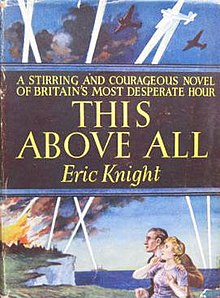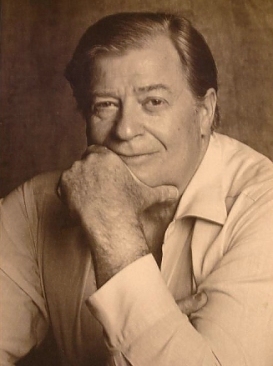
James Clavell was an Australian-born, British-raised and educated, naturalized-American writer, screenwriter, director, and World War II veteran and prisoner of war. Clavell is best known for his Asian Saga novels, a number of which have had television adaptations. Clavell also wrote such screenplays as those for The Fly (1958), based on the short story by George Langelaan, and The Great Escape (1963), based on the personal account of Paul Brickhill. He directed the popular 1967 film To Sir, with Love, for which he also wrote the script.

Larry Jeff McMurtry was an American novelist, essayist, and screenwriter whose work was predominantly set in either the Old West or contemporary Texas. His novels included Horseman, Pass By (1962), The Last Picture Show (1966), and Terms of Endearment (1975), which were adapted into films. Films adapted from McMurtry's works earned 34 Oscar nominations. He was also a prominent book collector and bookseller.
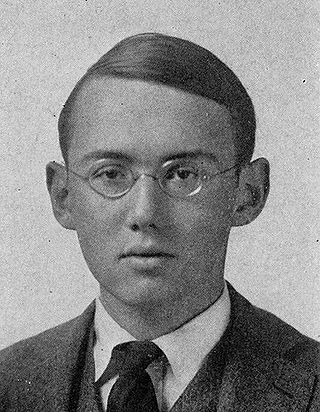
Stephen Vincent Benét was an American poet, short story writer, and novelist. He wrote a book-length narrative poem of the American Civil War, John Brown's Body, published in 1928, for which he received the Pulitzer Prize for Poetry, and for the short stories "The Devil and Daniel Webster", published in 1936, and "By the Waters of Babylon", published in 1937.

Anna Seghers, is the pseudonym of German writer Anna Reiling, who was notable for exploring and depicting the moral experience of the Second World War. Born into a Jewish family and married to a Hungarian Communist, Seghers escaped Nazi-controlled territory through wartime France. She was granted a visa and gained ship's passage to Mexico, where she lived in Mexico City (1941–47).

Robert Cedric Sherriff, FSA, FRSL was an English writer best known for his play Journey's End, which was based on his experiences as an army officer in the First World War. He wrote several plays, many novels, and multiple screenplays, and was nominated for an Academy Award and two BAFTA awards.

Neal Shusterman is an American writer of young-adult fiction. He won the 2015 National Book Award for Young People's Literature for his book Challenger Deep and his novel, Scythe, was a 2017 Michael L. Printz Honor book.
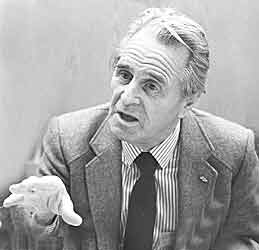
Harold Edward James Aldridge was an Australian-British writer and journalist. His World War II despatches were published worldwide and he was the author of over 30 books, both fiction and non-fiction works, including war and adventure novels and books for children.

The Devil's Arithmetic is a historical fiction time slip novel written by American author Jane Yolen and published in 1988. The book is about Hannah Stern, a Jewish girl who lives in New Rochelle, New York, and is sent back in time to experience the Holocaust. During a Passover Seder, Hannah is transported back in time to 1941 Poland, during World War II, where she is sent to a concentration camp and learns the importance of knowing about the past.

Cold Mountain is a 1997 historical novel by Charles Frazier which won the U.S. National Book Award for Fiction. It tells the story of W. P. Inman, a wounded deserter from the Confederate army near the end of the American Civil War who walks for months to return to Ada Monroe, the love of his life; the story shares several similarities with Homer's Odyssey. The narrative alternates every chapter between the stories of Inman and Ada, a minister's daughter recently relocated from Charleston to a farm in a rural mountain community near Cold Mountain, North Carolina, from which Inman hails. Though they only knew each other for a brief time before Inman departed for the war, it is largely the hope of seeing Ada again that drives Inman to desert the army and make the dangerous journey back to Cold Mountain. Details of their brief history together are told at intervals in flashback over the course of the novel.

David Ebershoff is an American writer, editor, and teacher. His debut novel, The Danish Girl, was adapted into an Academy Award-winning film of the same name in 2015, while his third novel, The 19th Wife, was adapted into a television movie of the same name in 2010.

Mrs. Miniver is a 1942 American romantic war drama film directed by William Wyler, and starring Greer Garson and Walter Pidgeon. Inspired by the 1940 novel Mrs. Miniver by Jan Struther, it shows how the life of an unassuming British housewife in rural England is affected by World War II. Produced and distributed by Metro-Goldwyn-Mayer, its supporting cast includes Teresa Wright, May Whitty, Reginald Owen, Henry Travers, Richard Ney and Henry Wilcoxon.

How Green Was My Valley is a 1941 American drama film directed by John Ford, adapted by Philip Dunne from the 1939 novel of the same title by Richard Llewellyn. It stars Walter Pidgeon, Maureen O'Hara, Anna Lee, Donald Crisp, and a young Roddy McDowall.

Atonement is a 2007 romantic war drama film directed by Joe Wright and starring James McAvoy, Keira Knightley, Saoirse Ronan, Romola Garai, and Vanessa Redgrave. It is based on the 2001 novel of the same name by Ian McEwan. The film chronicles a crime and its consequences over the course of six decades, beginning in the 1930s. It was produced for StudioCanal and filmed in England. Distributed in most of the world by Universal Studios, it was released theatrically in the United Kingdom on 7 September 2007 and in North America on 7 December 2007.

This Above All is a 1942 American romance film directed by Anatole Litvak and starring Tyrone Power and Joan Fontaine as a couple from different social classes who fall in love in wartime England. The supporting cast features Thomas Mitchell, Nigel Bruce, and Gladys Cooper. Set in World War II, the film is adapted from Eric Knight's 1941 novel of the same name.
William Percy Lipscomb was a British-born Hollywood playwright, screenwriter, producer and director. He died in London in 1958, aged 71.
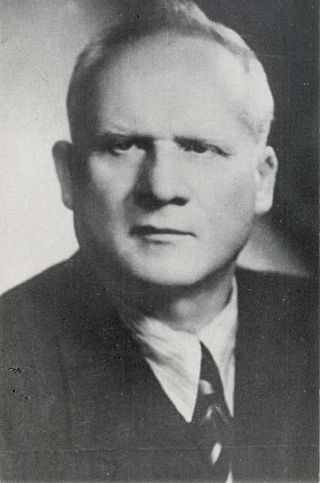
Prežihov Voranc was the pen name of Lovro Kuhar, a Slovene writer and communist political activist. Voranc's literary reputation was established during the 1930s with a series of Slovene novels and short stories in the social realist style, notable for their depictions of poverty in rural and industrial areas of Slovenia. His most important novels are Požganica (1939) and Doberdob (1940).

Random Harvest is a novel written by James Hilton, first published in 1941. Like previous Hilton works, including Lost Horizon and Goodbye, Mr. Chips, the novel was immensely popular, placing second on Publishers Weekly list of best-selling novels for the year, and it was published as an Armed Services Edition during WWII.

HMS Venomous (ex-Venom), was a Modified W-class destroyer of the British Royal Navy that saw service in the Russian Civil War and World War II.

The Vanishing Virginian is a 1942 American drama film directed by Frank Borzage and starring Frank Morgan and Kathryn Grayson. It is based on the memoirs of Rebecca Yancey Williams and set in Lynchburg, Virginia, from 1913 to 1929.

The Paladin is a 1979 historical novel by Brian Garfield. Supposedly based on a true story, it is about a young boy "Christopher Creighton" who befriends Winston Churchill in the mid 1930s and then goes on to take an active role in a number of World War II operations including: informing Churchill in advance of the surrender of Belgium leading to the Dunkirk evacuation, stopping the Americans from being warned of the Attack on Pearl Harbor by sinking a submarine, and misleading the Germans about the Normandy invasion.
